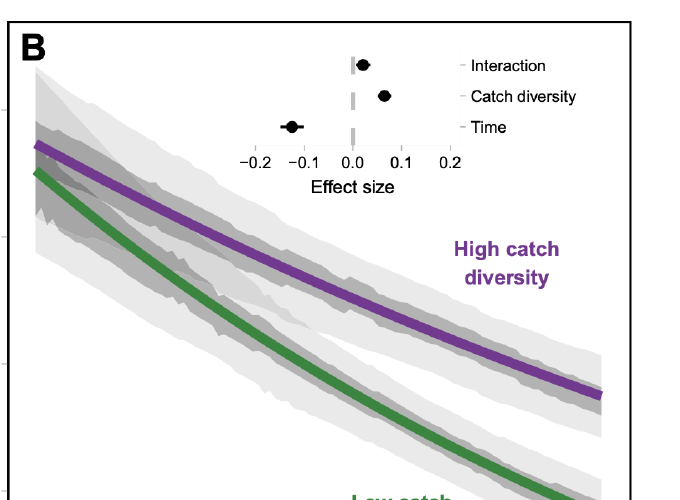
Diversification insulates fisher catch and revenue in heavily exploited tropical fisheries.

Diversification insulates fisher catch and revenue in heavily exploited tropical fisheries.
Type
Publication
Science Advances
Date
February, 2020
Declines in commercial landings and increases in fishing fleet power have raised concerns over the continued provisioning of nutritional and economic services by tropical wild fisheries. Yet, because tropical fisheries are often data-poor, mechanisms that might buffer fishers to declines are not understood. This data scarcity undermines fisheries management, making tropical fishing livelihoods particularly vulnerable to changes in marine resources. We use high-resolution fisheries data from Seychelles to understand how fishing strategy (catch diversification) influences catch rates and revenues of individual fishing vessels. We show that average catch weight decreased by 65% over 27 years, with declines in all nine species groups coinciding with increases in fishing effort. However, for individual vessels, catch diversity was associated with larger catches and higher fishing revenues and with slower catch declines from 1990 to 2016. Management strategies should maximize catch diversity in data-poor tropical fisheries to help secure nutritional security while protecting fishing livelihoods.